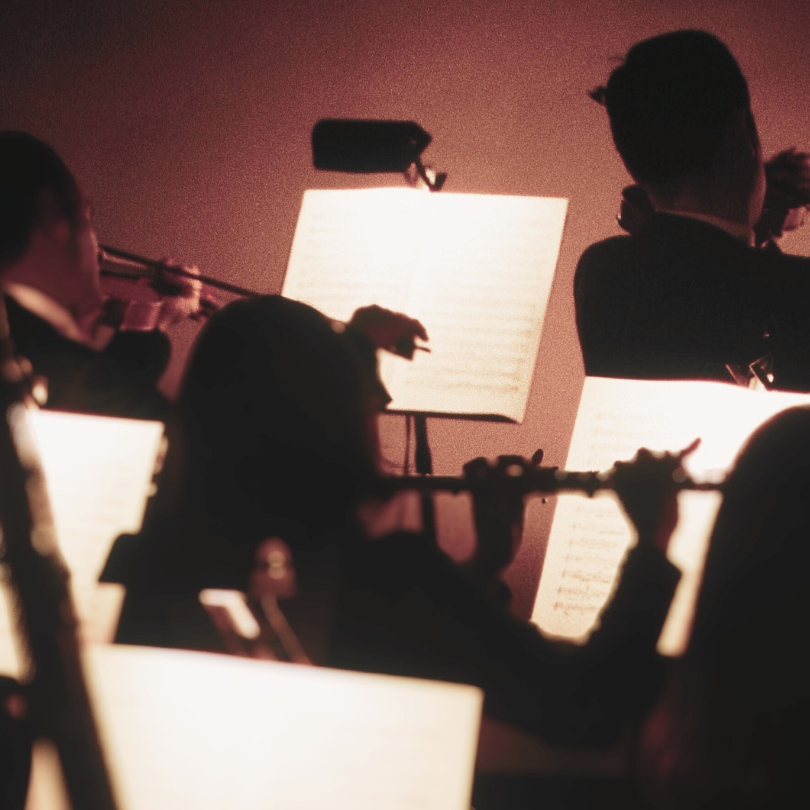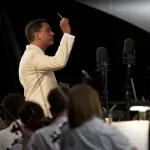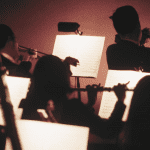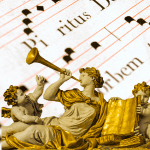Introduction
The world of classical music has long been dominated by male composers, with the likes of Beethoven, Mozart, and Bach often taking center stage. However, the 20th and 21st centuries have witnessed a remarkable revolution in the music world as female composers have broken barriers and made their mark on the classical music scene. These talented women have significantly contributed to the rich tapestry of classical music, and their stories deserve to be celebrated. In this article, let us take a journey through time and explore the lives and works of some of the most remarkable female composers from the 20th and 21st centuries.
The Pioneers:
Lili Boulanger (1893-1918)
Lili Boulanger, a French composer, left a lasting legacy in the world of classical music despite her short life. She was not only a remarkable composer but also the first woman to win the prestigious Prix de Rome composition competition. Boulanger’s compositions, such as the “Pie Jesu” from her “Psalm 24,” showcase her remarkable talent for choral music. Her ability to evoke deep emotions through her compositions continues to inspire musicians and audiences alike.
Florence Price (1887-1953)
Florence Price, an African American composer, overcame numerous racial and gender barriers to become a respected composer in her time. Her Symphony No. 1 in E minor was the first composition by an African American woman to be performed by a major symphony orchestra when it premiered in 1933. Price’s compositions blend elements of classical music with African American spirituals, creating a unique and powerful musical language that resonates with listeners.
Mid-20th Century Innovators:
Nadia Boulanger (1887-1979)
Nadia Boulanger, sister of Lili Boulanger, was a renowned French composer, conductor, and teacher. While she may be more famous for her role as a teacher, Boulanger’s own compositions showcased her technical mastery and deep musical knowledge. Her influence extended beyond her own compositions, as she played a crucial role in shaping the musical careers of many 20th-century composers, including Aaron Copland, Leonard Bernstein, and Astor Piazzolla. Boulanger’s dedication to nurturing and guiding young composers left an indelible mark on the musical landscape.
Late 20th Century and 21st Century Visionaries:
Kaija Saariaho (b. 1952)
Kaija Saariaho, a Finnish composer, has pushed the boundaries of classical music with her innovative use of electronics and spectral music techniques. Her compositions, such as “L’Amour de Loin” and “Graal théâtre,” have earned her numerous awards and international recognition. Saariaho’s music creates unique sonic landscapes that transport listeners to new and captivating realms.
Unsuk Chin (b. 1961)
Unsuk Chin, a South Korean composer, is known for her imaginative and colorful compositions. One of her most celebrated works is the opera “Alice in Wonderland,” based on Lewis Carroll’s novel. Chin’s inventive use of instrumentation and vocal techniques has garnered critical acclaim, earning her a place among the most respected contemporary composers.
The Forgotten Music History
Despite the remarkable accomplishments of these female composers, their contributions have often been overshadowed or forgotten in the annals of music history. The reasons for this oversight are multifaceted, ranging from gender biases prevalent in the music industry to the limited opportunities available to women composers in the past, as I have explored in the previous article. However, it is essential to rectify this historical injustice and celebrate the extraordinary talent and creativity of these women.
The Harmonious Revolution: Female Film Composers
While female composers have made significant strides in classical music, their contributions to the world of film music should not be overlooked. Female film composers have been instrumental in shaping the emotional landscapes of films, enhancing the narrative and immersing audiences in the cinematic experience. Just e few examples of the women that have left an indelible mark on the history of film music.
Rachel Portman (b. 1960)
Rachel Portman, a British composer, is renowned for her ability to evoke deep emotions through her music. She gained recognition for her work on films like “Emma” and “The Cider House Rules,” for which she became the first woman to win an Academy Award for Best Original Score. Portman’s compositions bring a unique and captivating dimension to the films she collaborates on.
Hildur Guðnadóttir (b. 1982)
Hildur Guðnadóttir, an Icelandic composer, has risen to prominence in recent years. Her hauntingly beautiful score for “Joker” earned her an Academy Award, making her only the fourth woman in history to win the Oscar for Best Original Score. Guðnadóttir’s compositions create a deep emotional connection with the audience, enhancing the storytelling of the films she works on.
Wendy Carlos (b. 1939)
Wendy Carlos, an American composer and electronic music pioneer, revolutionized film scoring with her groundbreaking work on the score for Stanley Kubrick’s “A Clockwork Orange” and “The Shining.” Carlos’s innovative use of the Moog synthesizer redefined the possibilities of film scoring and electronic music, leaving a lasting impact on the industry.
Pioneers and Trailblazers
All these female composers have not only demonstrated exceptional musical talents but also shattered glass ceilings and paved the way for future generations. Their stories and accomplishments serve as an inspiration for aspiring female composers, encouraging them to pursue their dreams and make their mark in the music industry.
Changing Landscapes
In recent years, the film industry has made significant strides in promoting diversity and inclusion, including increased opportunities for female composers. Organizations like the Alliance for Women Film Composers have played a crucial role in advocating for and supporting women in the industry. As we continue to celebrate the achievements of female composers and promote gender equality in the arts, the future holds even greater promise for these talented women, ensuring that their voices and talents will resonate for generations to come.
Challenges and Backlashes
However, while progress is being made, the journey toward gender equality is still not without challenges and setbacks. Unfortunately, even today, women face gender specific challenges. I a wonderful book called “Fabolous Female Musicians” author Sammy Stein interviews 21 top female musicians to discover how they handled the challenges of disappointment and success. The book provides an open and honest look at the struggles that female musicians face, such as sexual assault, misogyny, and bullying and a very recommendable read.
Conclusion
Female composers in the 20th and 21st centuries have broken through barriers, shattered glass ceilings, and enriched the world of classical and film music with their unique voices and perspectives. From the pioneers of the early 20th century to the visionary composers of today, these women have left an indelible mark on the musical landscape. As we continue to celebrate their achievements and promote gender equality in the arts, the future holds even greater promise for female composers, ensuring that their voices will resonate for generations to come. Let us remember and celebrate the remarkable contributions of these talented women, as they continue to shape the soundscapes of our lives.







0 Comments